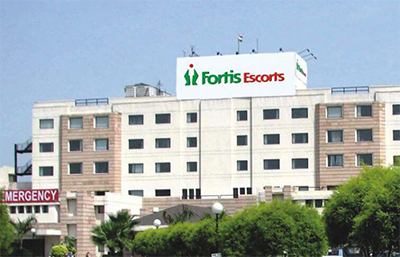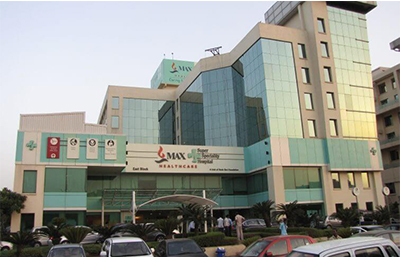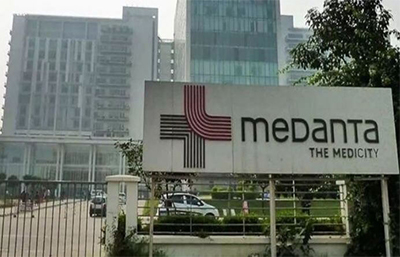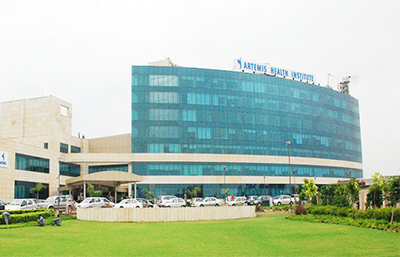Gastroenterology Treatment

Gastroenterology Treatment in India
Gastroenterology is a part of medicine that studies the function and diseases of the gastrointestinal tract (GI). Gastroenterologists can treat any type of disease relating to the GI tract, from irritable bowel syndrome to hepatitis C.
Important areas of disease:
- Pancreatic disease
- Transplantation
- Chronic inflammation of the DI tract or irritable bowel syndrome
- Hepatology, which is concerned in studying and managing the diseases that affect the liver, gallbladder, biliary tree and pancreas
What is Gastroenterologist?
Doctors specialized in treating the diseases of the GI tract are called gastroenterologists. They use endoscopic procedures to diagnose a patient. However, you shouldn’t confuse them with surgeons. Gastroenterologists don’t perform any surgery but sometimes work closely with a gastroenterology surgeon. Gastroenterologists treat all the GI system except the mouth. In these cases, dentists usually treat oral diseases.
GI system includes:
- Pharynx
- Oesophagus
- Small intestine, Large intestine
- Liver
- Gallbladder
- Pancreas
- Tongue
- Rectum
- Epiglottis
Gastroenterology Procedures
Surgery it is not always preferred when diagnosed with a gastroenterology illness. Some patients may rely on medications in treating the disease. However, some of the procedures in treating more common illnesses include:
- Colonscopy: is an examination of the diseases appeared in the large. During this procedure, a long tube is inserted in the rectum. Altogether with the tube, there’s a small camera at the end of it, allowing the gastroenterologist to analyze the disease.
- Endoscopic retrograde cholangiopancreatography (ERCP): This procedure includes a camera inserted in the throat, in order to analyze the oesophagus, stomach and the small intestine. This procedure’s aim is to find out where the disruption of the GI tract is happening. The patient will go throughout anaesthesia and may need a day or two to recover.
- CT Scans: CT Scans include a number of X-ray series that use the computer to create a detailed view of the organs. Your doctor might tell you not to eat a few hours before. This procedure usually takes minutes to half an hour.
- Laparoscopic Surgery: Laparoscopic Surgery throughout this procedure, a small camera is inserted in the abdomen for research purposes. Moreover, surgical tools are inserted, and the patient undergoes removal of polyps or part of organs.
Gastroenterology Treatments
Depending on how serious the disease is, most treatments will be either through surgery or medications. Surgery will be necessary if there are tumours or polyps presented in the digestive tract, or when compaction of fetal matter happens. However, surgery is not often required. Many times, all it takes to treat a gastric disease is changing the lifestyle and using the right medications.
Minimally Invasive Gastrointestinal Surgical Procedures
- Laparoscopic Adrenalectomy: It is a procedure which is done primarily to treat tumors of the adrenal glands. Adrenal glands are located at the top of both kidneys and work in close collaboration with the pituitary gland and hypothalamus in the brain to provide essential hormones. The surgery takes a maximum of 6-7 hours and patients need to remain in the facility for a couple of days or more depending on the recovery plan.
- Laparoscopic Appendectomy: It is a minimally invasive procedure to remove infected appendix as long as the organ is intact and the infection is not spread. The procedure takes a maximum of 4-5 hours although the recovery time maybe a week or a couple of weeks.
- Laparoscopic Bariatric Surgery: is a minimum invasive surgery recommended for patients suffering from acute and chronic issues related to weight. The technique reduces the stomach size and is popular among people who can’t reduce weight even with exercise and dieting. Patients are required to spend at least a couple of days in the medical facility to completely recover from this procedure.
- Laparoscopic Cholecystectomy: It is a minimally invasive surgery performed to treat gallstones by removing the gallbladder. The surgery is quick, efficient and has a huge success rate however. patients are required to spend a couple of days or more to fully recover from the surgery.
- Laparoscopic Foregut Surgery: It is a minimally invasive procedure that can address issues related to the stomach, esophagus, and upper small intestines. The surgical procedure is usually completed within a day of admission although the recovery time may take a couple of weeks or more depending on the patient’s strength and fitness.
- Laparoscopic Colon and Rectal Surgery: is a surgical procedure that can be used to treat disorders of the anus, rectum, and colon. The surgery requires the patient to spend at least a week at the hospital and usually 6 weeks in the recovery process. The procedure is quick, efficient and cost-effective.
- It is a surgical procedure that can repair a paraesophageal hernias and symptomatic hiatal hernias. The surgery can be used to treat hiatal hernia that causes heartburn, chest or abdominal discomfort, discomfort with eating, shortness of breath, or no symptoms at all. The surgery takes less than a day although patients would require spending time in the medical facility for a week or two to recover.
- Laparoscopic Nissen: is a surgical procedure used to treat severe gastroesophageal reflux disease (GERD). Patients suffering from this chronic digestive disorder often have symptoms including feeling a burning sensation in their chests, throats, or mouths, chest pain, difficulty swallowing, or a sore throat. The surgery has a high rate of success and patients do not need to spend much time at the facility after the procedure.
To get in touch with us, simply submit your questions to our inquiry area. We will propose the finest Gastroenterology treatment in India after we have reviewed your enquiry.









